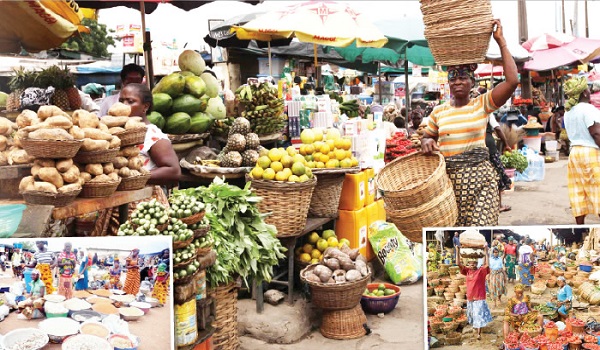Nigerians are to contend with inflationary pressures and less disposable incomes, no thanks to the 3.09 per cent rise announced by the National Bureau of Statistics (NBS) in inflation rate.
In its report released yesterday, the NBS said inflation rose for the tenth consecutive month to 21.47 per cent last month.
The inflation figure released by the Bureau shows that the headline inflation rate rose by 38 basis points from 21.09 per cent in October to 21.47 per cent within a month.
The continued upward trend in inflation rate was in line with The Nation’s exclusive report, projecting increase in inflation rate.
In its document titled: “CPI and Inflation rate November, 2022”, the NBS attributed the increase in inflation rate to sharp increase in demand usually experience during the festive season as well as increase in cost of importation due to the persistent currency depreciation and the general increase in the cost of production, especially increase in energy cost.
The document noted that food inflation rate in November was 24.13 per cent while urban inflation was 22.09 per cent last month as against 15.92 per cent recorded in comparable period of November 2021.
According to the NBS, the rise in food inflation was caused by increases in prices of bread and cereals, oil and fat, potatoes, and yam.
The Bureau, however pointed out that on month-month basis, the urban inflation rate was 17.55 per cent higher compared to October 2022 of 1.33 per cent.
According to the data, the rural inflation rate in November 2022 was 20.88 per cent in November 2022 compared with 14.89 per cent in November 2021.
A state-by-state breakdown showed that, in terms of all items inflation, in November 2022, the inflationary pressure was highest in Ebonyi at 26.11 per cent, Kogi, 25.84 per cent; Rivers, 24.45 per cent while Kaduna, 18.87 per cent; Sokoto, 19.02 per cent; and Cross River, with 19.17 per cent, recorded the slowest rise in headline inflation.
Food inflation was highest in Kwara in November 2022 at 29.74 per cent; Kogi, 29.51 per cent; and Ebonyi, 28.25 per cent while Kaduna, 19.30 per cent; Sokoto, 19.48 per cent and Jigawa, with 20.55 per cent, recorded the slowest rise in food inflation in November 2022.

Analysts at Financial Derivatives Company (FDC) attributed the continuing rise in inflation rate to “exchange rate pass-through effect, lingering effects of the flood and higher cost of production due to the astronomical rise in energy costs”.
Analysts noted that month-on-month increase was due to an increase in demand and business activity as the festive season approaches.
FDC, however, pointed out that as global inflationary pressures maintain a downward trend as the year comes to an end, Nigeria’s inflationary pressures appear to be persistent.
The FDC analysts noted that some sub-Saharan African countries, such as Botswana and South Africa, were also experiencing lower inflationary pressures as their inflation rate trended downward.
“In Nigeria, however, inflationary pressures appear to be persistent. The effects of exchange rate pass-through, as well as other domestic challenges, continue to fuel inflation in the country. Although the CBN has adopted restrictive measures since May 2022, the money supply and the Central Bank of Nigeria (CBN) balance sheet have continued to balloon.
“We expect the inflation rate to inch up further and remain elevated in the coming months. The monetary policy committee is also expected to remain hawkish in its monetary policy decision in the near term as the inflation rate remains above its target of 9.0 per cent,” FDC stated.
Analysts at Cordros Capital, however, said they expected moderate inflation rate this month.

